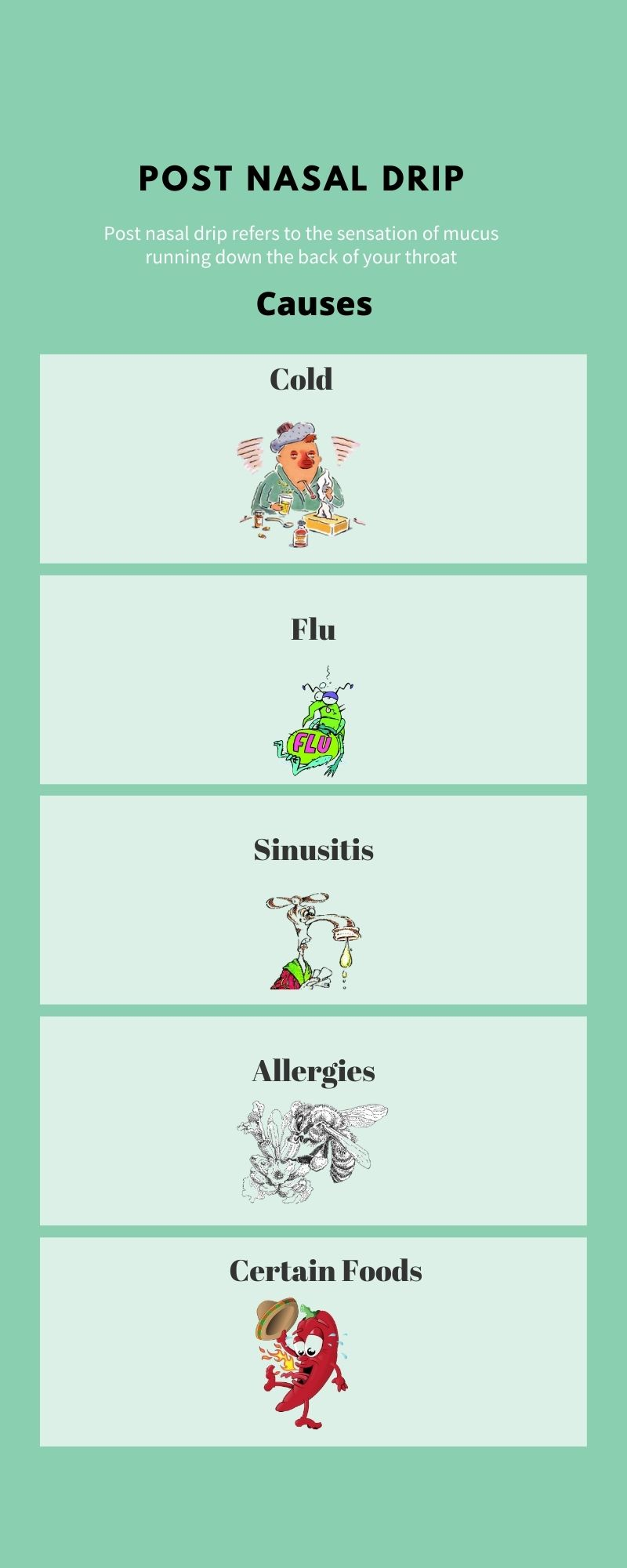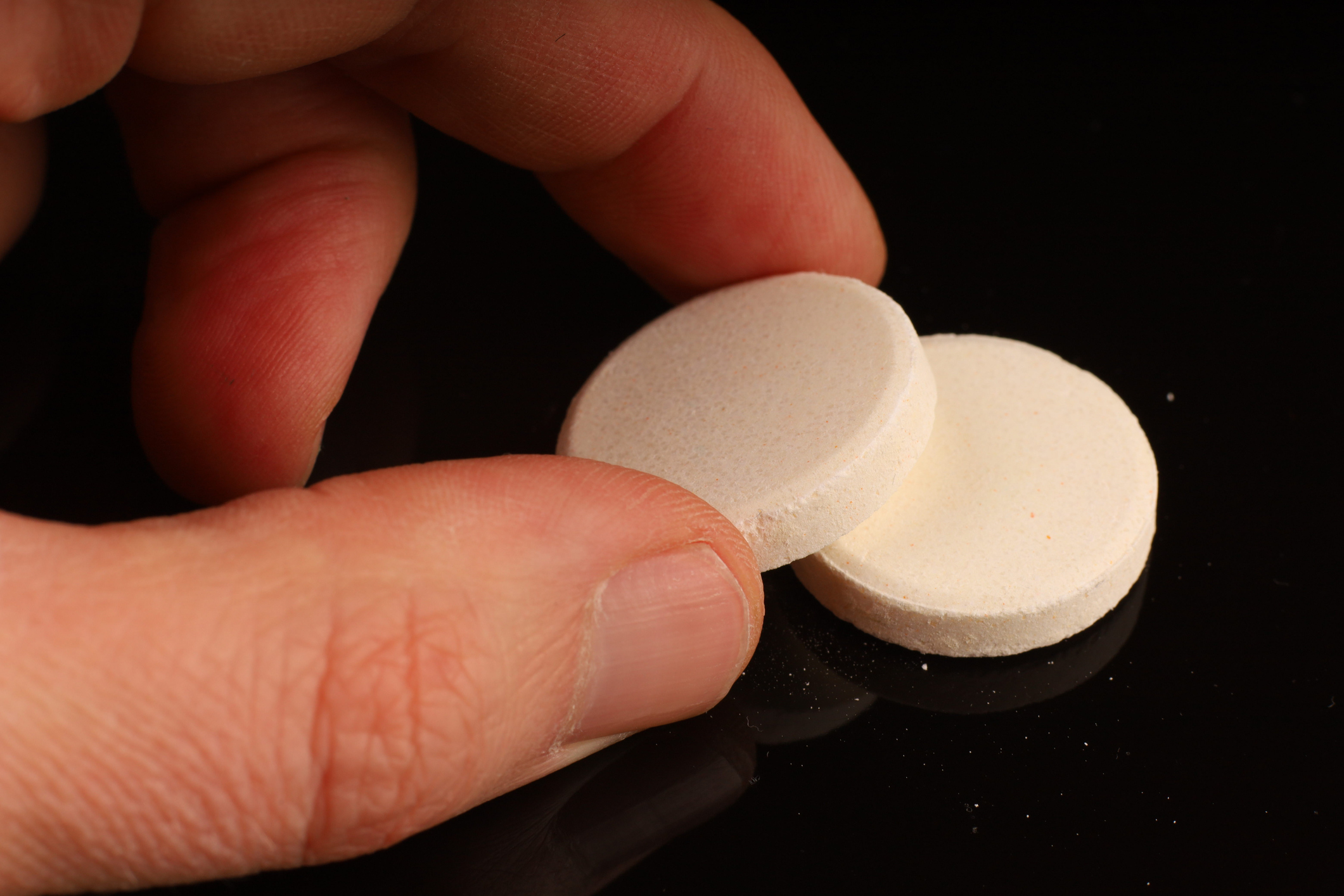Addressing Constant Throat Clearing: A Guide for Palm Springs Residents
For many people in Palm Springs, constant throat clearing is more than just a minor annoyance; it can be a symptom of an underlying health issue that may require attention. This behavior not only irritates the throat but can also lead to vocal cord damage over time. This SANE MD blog post explores the reasons behind frequent throat clearing, common causes, and effective solutions tailored for the Palm Springs community.
Summary:
1. Impact of Constant Throat Clearing
Persistent throat clearing can irritate the throat and damage the vocal cords, potentially leading to more serious conditions if not addressed.
2. Common Causes
Conditions that can lead to frequent throat clearing include acid reflux, allergies, postnasal drip, swallowing disorders, vocal cord growths, and even tic disorders. Each of these can be exacerbated by the dry, dusty climate of Palm Springs.
3. Home Remedies and Treatments
Managing throat clearing often involves at-home remedies that soothe and protect the throat, such as:
– Warm Salt Water Gargling: Helps clean the throat and reduce irritation.
– Ginger and Honey Tea: Soothes the throat and reduces the urge to clear it.
– Staying Hydrated: Keeps the throat lubricated, which can prevent irritation.
– Brushing Your Tongue: Reduces bacteria that can contribute to throat discomfort.
Understanding Throat Clearing
Throat clearing is a mechanism to move mucus and irritants from the airway, but when done excessively, it can lead to chronic irritation. In Palm Springs, where allergens and dry air are prevalent, residents may find themselves clearing their throats more often than usual.
Why It’s a Problem
Frequent throat clearing can traumatize the vocal cords, leading to inflammation and a cycle of more mucus production and throat clearing. Identifying and treating the underlying cause is crucial to breaking this cycle.
Local Considerations in Palm Springs
Given the local climate—characterized by dry air and seasonal winds—residents may experience aggravated respiratory conditions that can lead to or worsen throat clearing. Adjusting to these environmental factors is key in managing symptoms effectively.
Moving Forward:
For those in Palm Springs struggling with constant throat clearing, understanding the underlying causes and implementing effective remedies can make a significant difference. Whether the cause is environmental, such as allergies or dry air, or related to a health condition like acid reflux, addressing it with appropriate strategies can reduce or eliminate the need for constant throat clearing.
This guide provides practical advice for Palm Springs residents on how to manage constant throat clearing, considering local environmental factors and common underlying conditions. By taking proactive steps to treat this issue, individuals can improve their throat health and overall quality of life.

- New Report Says Your Brain Could Be the Key to Reducing Phlegm Over 50
- Doctor's "Leave The Throat Phlegm Behind" Tutorial Goes Viral With People Over 50
- Can You Relieve Throat Phlegm and Coughing In 60 Seconds A Day? This Doctor Says Yes
- How To Banish Phlegm When 50+ (Do This Every Day)
Key Takeaways
- Constant throat clearing can irritate the throat and eventually damage the vocal cords. It can also indicate an underlying condition that needs to be evaluated and treated.
- Various conditions can cause frequent throat clearing, including acid reflux, allergies, postnasal drip, swallowing disorders, vocal cord growths, and tic disorders.
- Treating throat clearing depends on the cause. Effective at-home remedies for cleaning and disinfecting the throat include warm salt water gargling, ginger and honey tea, staying hydrated, and brushing your tongue.
What’s wrong with constant throat clearing?
The mechanics of throat-clearing are pretty simple. When we clear our throats, we move mucus from our airway into the throat. This can become excessive when there is too much mucus, such as during a cold or allergies.
However, some people develop the habit of clearing their throats even when there is no excess mucus, which can be problematic.
Repeatedly clearing your throat can harm your vocal cords. Your vocal folds are fragile ligaments that can be traumatized by the friction and pressure caused by continuous throat clearing. As a result of this trauma, your body responds with inflammation and mucus production, which can cause even more throat-clearing. This cycle of mucus production and inflammation can easily become a habit.
But frequently clearing your throat can also be triggered by an underlying condition.
Common Causes of Chronic Throat Clearing
Frequent or constant throat clearing can have various underlying causes, such as allergies, acid reflux, medication side effects, and eating habits.
Here are some typical causes of constant throat clearing and possible treatments.
1. Postnasal Drip
Post nasal drip, also known as upper airway cough syndrome (UACS), is a condition where excessive mucus production by the nasal mucosa causes mucus to accumulate in the back of the nose and eventually drip down into the throat.
This postnasal drainage can be caused by allergies, viral infections like the common cold, eating spicy foods, sinus infections, and acid reflux.
Other symptoms of postnasal drip may include:
- A sore throat
- Cough, especially at night
- Halitosis (bad breath)
- Nausea due to swallowing the excess mucus
Treatment Options
The treatment for post-nasal drip depends upon the cause. Common treatment options include the following:
- Antibiotics for bacterial infections
- Over-the-counter antihistamines, such as Claritin, for nasal and sinus allergies
- Over-the-counter decongestants, such as Sudafed, to relieve congestion
- Mucus-thinning medication (expectorant), such as Mucinex, to more easily cough it out and clear nasal passages
- Saline nasal sprays to flush out mucus and other irritants from nasal passages
Home remedies include:
- Drinking plenty of water
- Elevating your head while sleeping (to keep mucus from collecting in the back of your throat
- Using a neti pot to flush out nasal passages
- Drinking one tablespoon of organic honey mixed in a glass of warm water to relieve congestion and inflammation
- Drinking ginger tea to reduce congestion

Explanatory Text
Post Nasal Drip. Post Nasal Drip refers to the sensation of mucus running down the back of your throat. Causes: cold, flu, sinusitis, allergies, certain foods.
End Explanatory Text
2. Silent Reflux
Laryngopharyngeal reflux (LPR), known as silent reflux, occurs when stomach acid moves up into the esophagus and irritates the throat. This can lead to irritation in the airways, causing a chronic cough and frequent throat clearing, taking a toll on your throat health.
Unlike gastroesophageal reflux disease (GERD), LPR may not always cause heartburn or chest pain that mimics a heart attack. The only symptoms of reflux in LPR could be persistent coughing and throat clearing.
Other reflux symptoms include:
- Chronic sore throat
- The sensation of a lump in the throat (Globus syndrome)
- Vocal hoarseness, especially after sleeping
- Sour or bitter taste in the mouth
- Difficulty swallowing
- Nausea or vomiting
- Regurgitation
- Pain when speaking
- Respiratory issues, like asthma
- Excess throat mucus
- Difficulty breathing

Treatments for Silent Reflux
Silent reflux involves the same treatment protocol as GERD and includes:
- Antacids, like Rolaids, to neutralize stomach acid
- Proton pump inhibitors (PPI), such as Prilosec, to reduce the secretion of stomach acid
- H2 receptor blockers, such as Tagamet, to reduce stomach acid production
Making a few lifestyle changes is also often necessary to reduce the throat irritation of silent reflux. These changes may include one or more of the following:
- Avoiding reflux “trigger” foods, such as spicy foods, citrus foods, and greasy foods
- Losing weight or maintaining a healthy weight
- Avoiding eating before bedtime
- Eat small meals frequently
- Elevating your head with pillows or raising the head of your bed while sleeping
- Cigarette smoking cessation
- Quitting tobacco usage
- Cutting back on alcohol intake
- Limit caffeine consumption

3. Allergies and Constant Throat Clearing
Tickling in the throat can be caused by both food and nasal allergies. Dairy is the most common culprit for throat clearing caused by food allergies, but other foods like soy, eggs, and rice can also cause this sensation. If you find yourself clearing your throat frequently throughout the day, it could be due to these food allergies.
Moreover, environmental allergens like dust, pollen, and animal dander can trigger nasal allergies, leading to excess mucus production and frequent throat clearing.
Other allergy symptoms include:
- Runny nose
- Sore throat
- Itchy eyes
- Dry cough
- Sneezing
- Itching
Treating Allergies
Treatment options for allergies depend upon the type of allergy, and may include:
- Identifying and avoiding the allergen
- Taking over-the-counter decongestant or antihistamine medications
- Getting regular allergy shots
4. Swallowing disorders
Having trouble swallowing may be caused by neurological problems like a stroke or structural abnormalities within the body. This issue can also be due to severe acid reflux.
Difficulty with swallowing can result in throat irritation and frequent throat clearing, and heartburn may also occur as a symptom of acid reflux.

Treating swallowing disorders
Treating swallowing issues depends upon the cause and may include:
- Neurological medication (for brain-related issues)
- Over-the-counter medications for acid reflux
- Regular visits with a speech-language pathologist for therapy to strengthen your swallowing muscles
- Surgery, in some cases.
Lifestyle interventions may also be helpful for swallowing issues, including:
- Eating softer foods
- Drinking plenty of fluids
- Gargling with warm salt water
- Eating smaller, more frequent meals
- Eating more slowly
- Chewing food thoroughly
- Drinking thicker liquids (if you have problems swallowing regular liquids
- Using a humidifier to moisten the throat
- Reduce consumption of caffeine and alcohol, as they can dry out the mouth and throat
5. Tic Disorders
Tic disorders are characterized by sudden, fast, persistent, uncontrollable muscle movements that result in body jolts or verbal sounds. The most well-known tic disorder is Tourette syndrome.
The exact cause of these disorders is unclear, but it is believed to be influenced by genetic factors and tends to affect males more frequently than females. Interestingly, a study conducted in 2015 revealed that throat clearing is among the top five most prevalent symptoms associated with tic disorders (1).
Other symptoms of tic disorder include sudden, repetitive:
- Muscular jerking or twitching
- Shrugging
- Blinking
- Facial scowling
- Grunting
- Groaning
Treatment for tic disorder varies and may include neurological treatment, physical therapy, and medications.
6. Vocal Cord Growths and Constant Throat Clearing
If a person develops abnormal growths like polyps, nodules, or cysts on their vocal cords, they may experience a sensation of something strange in the back of their throat. Without knowledge of the growth, they may attempt to clear their throat to remove what they perceive as an object.
Growths on the vocal cords can be cancerous or noncancerous (benign).
Other symptoms can include:
- Breathlessness
- Vocal hoarseness
- A rough or scratchy voice
- Pain when speaking
Causes of a vocal cord growth include:
- Cigarette smoking
- GERD
- Straining the vocal cords through strenuous or excessive singing or speaking
- Allergies
- Forceful or frequent coughing
Treating a vocal cord growth
Initially, the doctor will address the root cause of the growth and then consider surgical removal if the growth is substantial or does not respond to treatment. They may also refer you to a specialist for evaluation and treatment.
A speech-language pathologist may be necessary to assist the patient in certain cases.
7. Blood Pressure Medications
Specific blood pressure medications are known to promote frequent throat clearing. So, if you’re taking this type of medication and find yourself frequently clearing your throat, it may be a side effect of your blood pressure medication.
Talk to your doctor about switching to a potential substitute.
8. Habit
In some cases, throat clearing may be a habit or a subconscious response to anxiety or stress rather than a symptom of an underlying condition.
If you believe you’re trapped in a throat-clearing habit, there are things you can do to reduce the frequency of this throat-irritating routine.
Drink plenty of water
Closely monitor the incidences of throat-clearing
Substitute another habit for that of throat clearing. For example, swallow hard each time you feel like clearing your throat.
Throat Health Tips Regardless of the Underlying Cause
Your mouth, throat, and voice box are essential to a happy life. Therefore, you must take steps to care for it. Below are some tips to help you get started.
How to Clean Your Throat
A helpful tip for cleaning your throat is to gargle with warm salt water daily. This method can help thin out mucus and provide relief.
Mix 2-3 tablespoons of salt in a glass of warm water to prepare. Take a sip of the solution and tilt your head back to gargle for a few seconds, ensuring the water reaches your throat. Afterward, spit the solution out and repeat as necessary.
How to Disinfect Your Throat
Mixing ginger and honey is an excellent throat disinfectant. In a 2012 laboratory study, researchers found ginger has the highest antioxidant effect compared to alligator pepper and nutmeg (2). Meanwhile, raw honey is famous for its antioxidant and anti-inflammatory properties. By mixing them, you can safely and quickly disinfect your throat.
There are many ways to mix ginger and honey. One of the most popular methods is to make honey and ginger tea.
How to Make Honey and Ginger Tea
- Put one tablespoon of ginger and one-half tablespoon of honey in your favorite mug.
- Add hot water and stir.
- For a more tasty and tangy tea, squeeze a lemon over your tea and stir thoroughly.
That’s all there is to it! Feel free to enjoy this tasty, throat-disinfecting beverage as often as you desire.
How to Kill Bacteria in Throat
Can you guess how to kill bacteria in your throat? That’s right…a good old-fashioned warm salt or baking soda water will work wonders at killing those microscopic bugs.
Add 1/2 teaspoon of salt or baking soda to a glass of warm water and gargle with it daily to kill bacteria in the throat. This simple solution can help destroy those nasty bugs while reducing throat swelling and irritation.
Baking soda is also effective in breaking up the mucus that can cause throat irritation and frequent clearing. Remember not to swallow the mixture.
The Best Thing to Clean Throat
A helpful way to keep your throat clean is by brushing your tongue twice daily, once in the morning and once in the evening. Doing this helps clean your mouth and throat and prevents the accumulation of bacteria that can cause bad breath and disease. (3).
You can also try a good throat cleaner that supports brain health, as neuroinflammation has been shown to promote chronic throat clearing.
When to See a Doctor
If you have persistent throat clearing that negatively affects your life, seeking treatment is important. Your doctor can examine you and may recommend an endoscopy to understand better what’s happening in your throat. Additionally, allergy testing may be suggested.
Summary
It’s normal to clear your throat occasionally, but if it happens frequently, it could be a sign of an underlying health issue. Chronic throat clearing may also damage your vocal cords as time goes by.
If you’ve tried home remedies or taken over-the-counter medications, but the problem persists, seeking medical attention as soon as possible is best. This will help identify the cause of the condition and allow for appropriate treatment to begin.
Frequently Asked Questions
What is the fastest way to clean out your throat?
If you need to clear your throat, water can be beneficial. There are several methods you can try. For example, gargling with salt water and spitting it out can help remove mucus. Another option is to take a steamy shower with the bathroom door closed, as the steam can also help clear up mucus. Drinking a cup of warm tea with lemon and honey may also be effective.
What products are suitable for cleaning your throat?
If you’re dealing with mucus buildup in your throat or chest, a medication like Mucinex (guaifenesin) may be worth considering. This medication is an expectorant, as it works to thin and loosen mucus, making it easier to expel from your body.
What doctor treats mucus in the throat?
An otolaryngologist, also known as an ear, nose, and throat doctor, can diagnose and treat a wide range of conditions affecting the head and neck, from mild ailments like throat clearing, coughs, and runny noses to serious health issues like head and neck cancer.
Is it normal to have mucus in throat for months?
Many individuals suffer from chronic catarrh, characterized by a buildup of mucus in the airway that can last for months or even years. While it may be bothersome and challenging to eliminate, it is typically a temporary condition that poses no harm. Fortunately, there are several treatment options available to alleviate catarrh symptoms.
What disease causes excess mucus production?
Cystic fibrosis (CF) is an inherited disease caused by a faulty gene, which results in the production of thick and sticky mucus. This mucus accumulates in the lungs and pancreas, obstructing the airways and causing breathing difficulties.

- New Report Says Your Brain Could Be the Key to Reducing Phlegm Over 50
- Doctor's "Leave The Throat Phlegm Behind" Tutorial Goes Viral With People Over 50
- Can You Relieve Throat Phlegm and Coughing In 60 Seconds A Day? This Doctor Says Yes
- How To Banish Phlegm When 50+ (Do This Every Day)
References
1- https://www.sciencedirect.com/science/article/abs/pii/S0005796715000819
Dr. Matthew Olesiak, MD, is the Chief Medical Director at SANESolution, a renowned wellness technology company dedicated to providing evidence-based solutions for optimal living. Dr. Olesiak earned his medical degree from the prestigious Jagiellonian University Medical College in Kraków, Poland, where he developed a strong foundation in medicine.



